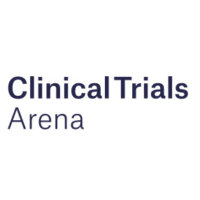Investigational Therapeutics That Restore Brain Synapses
Spinogenix is pioneering first-in-class, investigational therapeutics that restore brain synapses to improve the lives of patients worldwide.
A New Approach to the Brain’s Lost Connections
Spinogenix has designed small molecules to help restore the brain connections (synapses) in neurodegenerative, neuropsychiatric and neurodevelopmental conditions including amyotrophic lateral sclerosis (ALS), Alzheimer’s disease, schizophrenia, Fragile X Syndrome (FXS) and many others.
Latest Press Releases
Spinogenix Announces FRAXA Research Foundation Support for PIs Leading Phase 2b Trial of Investigational Therapy SPG601 for People with Fragile X Syndrome (FXS)
SPG601 is a first-in-class, BK-modulator with the potential to improve cognitive, emotional and sensory symptoms in FXS patients
Spinogenix Reports Evidence of Rapid, Sustained Cognitive Improvement in Alzheimer’s Patients from Phase 2a Trial of TAZBENTETOL (formerly SPG302)
Tazbentetol, a Potential First-in-Class, Oral Synaptic Regenerative Investigational Therapy, Showed a Favorable Safety Profile and Promising Benefits in Multiple Outcome Measures. Subset Exhibited Significant Improvement in AD-Related Brain Activity, As...
Spinogenix Announces World Health Organization Approval of ‘tazbentetol’ as International Non-Proprietary Name for SPG302
Tazbentetol is a First-in-Class, Synaptic Regenerative Investigation Therapy for Alzheimer’s disease, ALS, Schizophrenia and Glaucoma
In the News
Spinogenix’s Alzheimer’s drug touts disease-modifying potential in Phase IIa study
Topline data from a completed phase 2a trial (NCT05882695) highlighted the therapeutic benefits of SPG302, a synaptic regenerative drug, to treat patients with amyotrophic lateral sclerosis (ALS). All told, treatment...
From the Blog
Rethinking Alzheimer’s Treatment: It’s Time for a New Playbook in the Fight for Memory
Authored by Stella Sarraf, PhD CEO, Founder In September, we recognized World Alzheimer’s Month and championed the much-needed attention and awareness to one of the greatest health crises of our...

